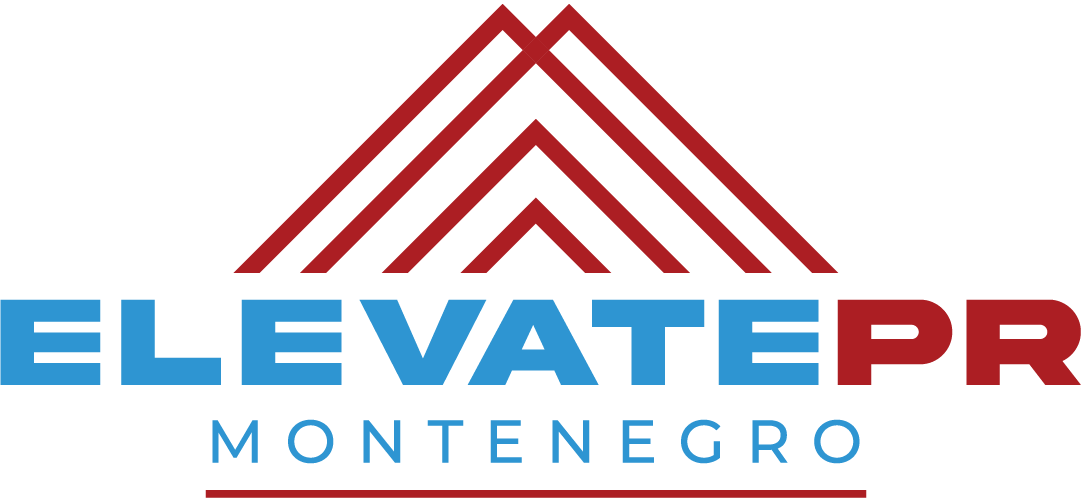Montenegro’s ascent toward EU membership is often framed around tourism, energy, and public governance. But beneath the surface lies a sector with enormous latent potential — EU-aligned health services, pharmaceuticals, and biotechnology.
While Montenegro cannot compete with the industrial scale of larger EU states, it can position itself as a specialised, agile, high-value medical-services ecosystem integrating Western standards, regional demand, and the mobility of European patients and businesses.
The EU’s acquis communautaire requires Montenegro to modernise medical regulation, digital health systems, pharmaceutical quality standards, clinical governance, labour frameworks, and data protection. These reforms do not simply align the country with European norms — they create a platform for a new medical services industry.
This article outlines why the health–biotech cluster is emerging as an unspoken high-value opportunity and how Montenegro could become a boutique medical, pharmaceutical, and biotech services hub for the Western Balkans and the EU.
EU accession brings strict medical & pharmaceutical alignment — and that’s an advantage
Many developing markets struggle with underregulated pharmaceutical sectors and fragmented health systems. Montenegro, through EU accession, is moving into an entirely different category.
Key EU-aligned transformations include:
- Good Manufacturing Practice (GMP) requirements
- Good Clinical Practice (GCP) standards
- EU pharmacovigilance system integration
- Advanced medical-device regulation (MDR/IVDR)
- Cross-border healthcare data interoperability
- Strengthened bioethics & clinical trial governance
- GDPR health-data protection
These reforms raise Montenegro’s credibility for investors, partners, and medical institutions — and enable cross-border service delivery.
Montenegro’s population is small, but that is an advantage: regulatory reforms move faster, agencies are smaller, and compliance systems are more manageable.
Medical tourism 2.0: From spa destination to specialist EU-grade healthcare
Montenegro already attracts affluent tourists. Once the regulatory framework is aligned with EU health standards, the country can design a new category: medical tourism 2.0, combining:
- elective medical procedures
- dental tourism
- ophthalmology
- orthopaedics & rehabilitation
- wellness & recovery
- fertility and reproductive medicine
These are among the fastest-growing segments in cross-border healthcare in Europe.
Why Montenegro is ideal:
- Euro-priced but lower-cost than Italy, Austria, Croatia
- Strong hospitality infrastructure
- Attractive recovery environment (coast, mountains)
- International airports (Tivat, Podgorica) close to clinics
- Ability to recruit regional specialists
- Proximity to EU and Balkan markets
EU-aligned digital-health infrastructure will allow European patients to access Montenegrin clinics with secure, interoperable records.
The opportunity in pharmaceuticals & biotech services
Montenegro will not host large pharmaceutical factories — but it can become a service and regulatory hub for specialised pharmaceutical activities.
Potential opportunities include:
A. Pharmaceutical packaging & serialization
EU regulation requires track-and-trace serial numbers on all medicines. Montenegro could host:
- packaging hubs
- serialisation centres
- cold-chain distribution facilities
B. Quality-control labs & analytical services
Specialised labs for:
- stability testing
- release testing
- microbiology
- raw-material analysis
Such services are in growing demand across the Western Balkans.
C. Regional pharmacovigilance hubs
Centralised centres to monitor adverse events, reporting into EU systems.
D. Clinical trial support / CRO (Contract Research Organisation) services
Montenegro can support:
- patient recruitment
- trial monitoring
- data management under EU GCP
- biomedical sample logistics
CROs increasingly decentralise operations — Montenegro can capture this niche.
Biotechnology: Montenegro cannot scale manufacturing, but it can scale knowledge
Biotechnology is shifting toward:
- digital bioinformatics
- tele-genomics
- personalised medicine
- biomarker analytics
- data-heavy trial management
- computational modelling
These are knowledge sectors, not heavy industrial sectors.
Montenegro can cultivate:
- biotech data labs
- bioinformatics service providers
- genetic testing services (EU-compliant)
- niche biotech R&D firms
- AI-supported medical analytics
EU alignment ensures the legal framework for sensitive biotech activities meets stringent safety and data standards.
Why the Western Balkans need Montenegro’s health & pharma cluster
Montenegro can serve as a neutral, EU-aligned medical & pharmaceutical service hub for Western Balkan markets facing:
- regulatory fragmentation
- unequal quality standards
- lack of clinical governance
- shortages of specialised personnel
- weak pharmacovigilance
- gaps in biotech analytics
Cross-border service opportunities:
- regional specialist clinics headquartered in Montenegro
- pharma logistics into Serbia, Albania, BIH, Kosovo, North Macedonia
- trial support for multinational pharmaceuticals across all markets
- remote digital-health services
- EU-grade rehabilitation centers targeting regional patients
- laboratory networks providing QA services for imported medicines
Montenegro’s neutrality and stability make it an attractive regional base.
Digital health & cross-border e-health: Montenegro’s competitive edge
The EU mandates digital health interoperability. Montenegro, as a smaller state, can implement digital health reform faster than larger neighbours.
Digital health services Montenegro can export:
- telemedicine
- cloud-based radiology reporting
- cross-border e-prescription processing
- digital medical imaging services
- laboratory analytics
- medical AI tools
The combination of GDPR, EU health interoperability standards, and Montenegro’s Eurozone environment creates ideal conditions for cross-border digital-health companies.
Infrastructure momentum: Private clinics, labs & rehabilitation centers
The private medical sector already shows signs of expansion.
Emerging investor directions:
- ophthalmology centers
- aesthetic and reconstructive surgery
- dental and implant clinics
- in-vitro fertilisation centers (IVF)
- sports medicine & orthopaedics
- post-operative rehabilitation facilities
- diagnostic imaging centers (MRI, CT, PET-CT)
- regional biotech & medical labs
Montenegro’s medical infrastructure can scale faster due to its size — infrastructure that takes a decade in big systems takes 3–4 years here.
Workforce development: Regional talent magnet
Montenegro can attract medical professionals from:
- Serbia
- Bosnia & Herzegovina
- Croatia
- North Macedonia
- Albania
The combination of:
- EU-aligned system
- Attractive lifestyle
- Tourism-driven population centers
- Euro salaries
makes Montenegro a talent-magnet for regional specialists.
Key reforms needed for full sector takeoff
1. Strengthening the medicines agency
Alignment with EMA rulebooks, digitalisation, inspection regimes.
2. National e-health platform
Interoperable, GDPR-compliant, accessible to cross-border patients.
3. Clinical governance & accreditation systems
Mandatory quality-assurance frameworks for private clinics.
4. Medical-device regulatory alignment
EU MDR/IVDR adoption.
5. Private medical investment incentives
Tax incentives, fast-track permits, medical free-zone models.
6. Pharma logistics regulation
Cold-chain enforcement, serialisation, GDP compliance.
Montenegro’s path toward an EU-aligned medical economy
Montenegro cannot become a mass medical producer — but it can become a boutique, high-value medical and biotech services economy serving:
- the domestic population
- EU medical tourists
- Western Balkan patients
- regional pharma companies
- clinical-research organisations
The combination of EU regulatory alignment, manageable scale, Smart Specialisation Strategy (S3) directions, and private-sector investment appetite makes this cluster one of the most promising long-term opportunities.
Elevated by www.mercosur.me


